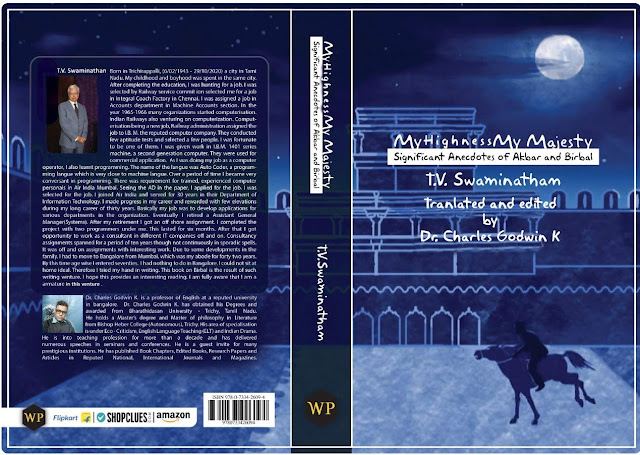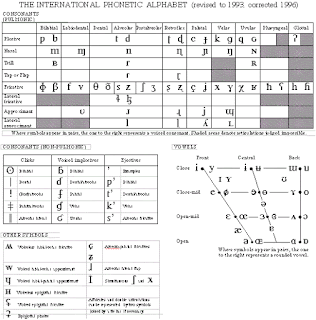EFFECTIVE POETRY ANALYSIS
Effective Poetry
Analysis through Mathew Arnold’s Touchstone Method.
Poetry is
something which sustain, console and interpret life for us. Arnold had given a
very high position to poetry that it is a substitute for religion. Arnold says
"The strongest part of our religion today is its unconscious poetry".
At this point, Arnold offers his theory of Touchstone Method.
Arnold’s
touchstone method is a comparative method of criticism. According to this
method, in order to judge a poet's work properly, a critic should compare it to
passages taken from works of great masters of poetry, and that these passages
should be applied as touchstones to other poetry. Even a single line or selected
quotation will serve the purpose. If the other work moves us in the same way as
these lines and expressions do, then it is really a great work, otherwise not.
Arnold
wants us to avoid the false evaluation of the historic estimate and the
personal estimate, and to attain to a real estimate by learning to feel and
enjoy the best work of the real classic, and thus to appreciate wide difference
between it and all lesser work. If you want to know whether any poetic work is
of a high quality, we should compare it with specimens of poetry of the highest
quality. According to him the most useful method of discovering the worth of
poetry is "to have always in one’s mind lines and expressions of the great
masters, and to apply them as a touchstone to other poetry". The real
classics can serve as the touchstone by which the merit of contemporary poetic
work can be tested. This is the central idea of Arnold’s Touchstone Method.
Arnold was
basically a classicist. He admired the ancient Greek, Roman
and French authors as the models to be followed by the modern English authors.
The old English like Shakespeare, Spenser or Milton were also to be taken as
models. Arnold took selected passages from the modern authors and
compared them with selected passages from the ancient authors and thus decided
their merits. This method was called Arnold's Touchstone Method. He quoted the
two lines from Milton;
"And courage never to submit or yield
And what is else not to be overcome"
It has been said that the sentiment
or the moral here is noble, but that the diction and movement are faulty.
Perhaps, in offering these two lines as a specimen of the highest poetry,
Arnold just tripped.
However,
this system of judgment has its own limitations. Arnold would probably have
agreed that his method of comparing passage with a passage is not a sufficient
test for determining the value of a work as a whole.
Arnold himself insisted that we must judge a poem by the 'total impression' and
not by its fragments. But we can further extend this
method of comparison from passages to the poems as whole units.
The comparative method is an invaluable aid to appreciation of any kind of art.
It is helpful not merely thus to compare the masterpiece and the lesser work,
but the good with the not so good, the sincere with the not quite sincere, and
so on.
Arnold
seems to go too far insisting all the time on work of the highest excellence in
literature. It is not fair to demand that "all hills should be Alps". There
may be an excellence in some minor poetry worthwhile on its own account. Arnold
expresses the view that good literature will never lose its currency. There
might be some vulgarization and cheapening of literary values, as a result of
the increase in numbers of the common sort of readers, but the currency of good
literature is ensured by, "the instinct of self-preservation in
humanity." So strong is Arnold’s faith in the value of poetry of the
highest kind. Arnold declared that it would be much better to disregard the
mass of current literature. By this method we can set apart the
alive, the vital, and the sincere from the shoddy, the showy and the insincere.
He declared, "In poetry, it is the glory, the eternal honor that
charlatanism shall find no entrance".
Touchstone method is a short
quotation from a recognized poetic masterpiece ‘The Study of Poetry’ (1880), it
is employed as a standard of instant comparison for judging the value of other
works. Arnold recommends certain lines of Homer, Dante, Shakespeare, and Milton
as Touchstone testing ‘the presence or absence of high poetic quality’ and
samples chosen from other poetry.
The “Touchstone Method” introduces
scientific objectivity to creative evaluation by providing comparison and
analysis as the two primary tools for judging individual poets. Thus, Chaucer,
Drydon, Pope and Shelly fall short of the best, because they lack high
‘seriousness’. Shakespeare thing too high in prioritizing expressions rather he
is too little in conception. Arnold’s ideal poetry is from Homer and Sophocles
in the ancient world, Dante and Milton, and among moderns, Goethe and
Wordsworth. Arnold puts Wordsworth in the front row for his poetry and for his
“Criticism of life”.
Arnold in order to judge a poetic
piece of work and to consider it as a greatest piece of work by taking the
passages and comparing with the other works and applies Touchstone to other
poetry. A single line or selected quotes will serve the purpose. Arnold has
shifted his position from that position from that expressed in the preface to
his poems of 1853. The study of poetry he no longer uses the acid test of
action and architectonics. He became an advocate of ‘touchstones’. ‘Short passages
even single lines,’ he says ‘will serve our turn quite sufficiently'.
Some of Arnold's touchstone
passages are: Helen's words about her wondered brother, Zeus addressing the
horses of Leleus, supplicant Achillus' words to Priam, and fromUgolion's brave
words, and Beatrice's loving words to
Virgil. From non-classical writers he selects from Henry IV part II (III’s, i)
Henry’s expostulation with sleep...’. From Milton’s Paradise Lost Book 1, ‘
Care set on his faded cheeks...’., and ‘What is else not to be overcome...’
Certain fallacies Arnold wants the
critic of contemporary readers like Ruskin to estimate the work of art as
‘historical importance’ and to judge with ‘historical estimate' and the fallacy
of ‘personal estimate' were both in Arnold's point of view. It adds the
reflecting strategy in estimating the work of art with proper response to
literature. According to Arnold the historical significance to the critic in
personal terms tends to obliterate the real estimate of that work as in itself
reality is. The best way to know the class, to which a work belongs in terms of
the excellence art, Arnold recommends, is
“to
have always in one's mind lines and expressions of the great masters, and to
apply them as a touchstone to other poetry.”
The entire track of English poetry
in survey according to Arnold is in comparison with the best lines of Homer,
Dante and Shakespeare. He divides various poetry into categories, in good and
great and not-so-good and not-so-great. His idea of tradition in selection
while constituencies of the body of literary history that a critic should care
for, and the best that we better ignore. Arnold's view of the greatness in
poetry and what a literary critic should look for are summed up as follows:
“it
is important, therefore, to hold fast to this: that poetry is at bottom a
criticism of life; that the greatness of
a poet lines in his powerful and beautiful application of ideas of life, - to the question: how to live.”
These manifesto for the criticism of the early
Victorians as well as an indictment of the critical creed, ‘art for art's
sake,’ as propounded and advocated by the later Victorians.



Comments
Post a Comment